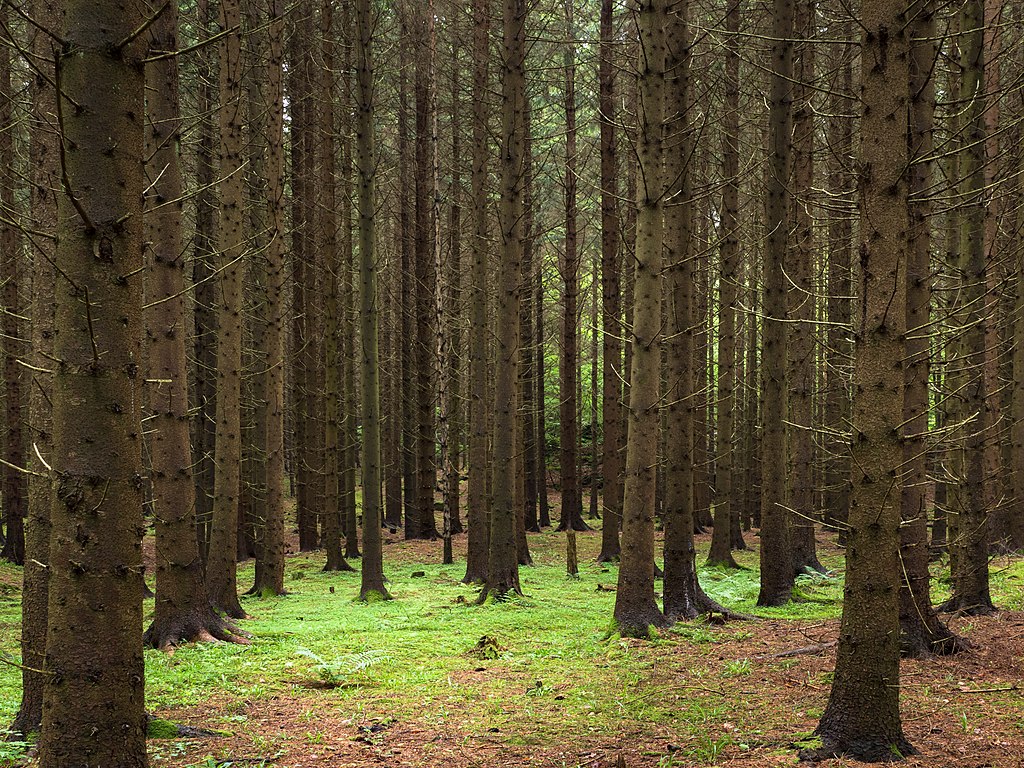Last month, Amanda Biscoe and Pamela Treviño hosted TreeTalks, a film screening and panel discussion focused on rainforest conservation and the role of young people in shaping its future. Through their work as co-directors of Gen Z for the Trees, a program within the Rainforest Partnership, Biscoe and Treviño created the event to bridge generational gaps in conservation and build hope amid growing climate anxiety. Both Biscoe and Treviño are students in the Master of Public Administration in Environmental Science and Policy (MPA-ESP) program, which is offered by Columbia’s School of International and Public Affairs in partnership with the Columbia Climate School.
They opened the evening with two short films. The first, Trees for Tamarins, follows a Colombian urban planner who launched Proyecto Tití to protect endangered tamarins through forest restoration, environmental education and artisan training for local communities. Abby Jordan, a graduate of the MPA-ESP program and climate education program manager at the National Wildlife Federation, shared a second film that follows a coastal resilience program in Coney Island. It features local teens, many of whom have experienced the effects of climate change firsthand, as they restore shorelines and raise awareness about sea level rise.
Biscoe and Treviño moderated the panel discussion, which included Jordan; Jay Schoen, a wildlife and spatial ecology consultant and adjunct professor at Columbia; Salo Coslovsky, an associate professor at New York University and researcher with the Amazon 2030 Project; and Carolina García, co-founder and CEO of Myzelio. Rae Wynn-Grant, a wildlife ecologist and co-host of “Mutual of Omaha’s Wild Kingdom” on NBC, recorded a message for the audience, urging students to prioritize their passion for conservation, even when academic pressures feel overwhelming.

The panel explored a wide range of perspectives on modern conservation. Panelists reflected on the challenges of scaling local projects, rethinking extractive systems and navigating feelings of grief about biodiversity loss. “One panelist talked about embracing grief as part of conservation,” said Treviño. “That really resonated with the audience because people often feel those emotions but don’t hear them acknowledged.”
Biscoe noted that the conversation reached a turning point when she asked, “What is Gen Z’s niche in all of this?” The panelists offered different takes, sparking a lively Q&A session with the audience. “We didn’t want a panel where everyone said the same thing,” said Biscoe. “We wanted honest dialogue, and we got it.”
“Talking to people who care and who see the importance of this work is what gives me hope”
They chose the panelists intentionally, looking for a mix of scientific, policy and community-based perspectives. With the support of Columbia faculty and fellow students, they reached out to speakers across the city. “Columbia’s network really opened doors for us,” said Biscoe. “It made it possible to bring people together that we might not have reached otherwise.”
TreeTalks marked the first event in a series Treviño and Biscoe plan to continue. They’re already exploring new formats and potential partnerships, including a future event at New York University.
For both organizers, the experience reinforced the importance of building spaces for connection and collaboration. “Talking to people who care and who see the importance of this work is what gives me hope,” said Treviño. Biscoe agreed. “So many people showed up,” she said. “Three of them came up afterward just to thank us. That made everything worth it.”
Source link
Guest news.climate.columbia.edu

